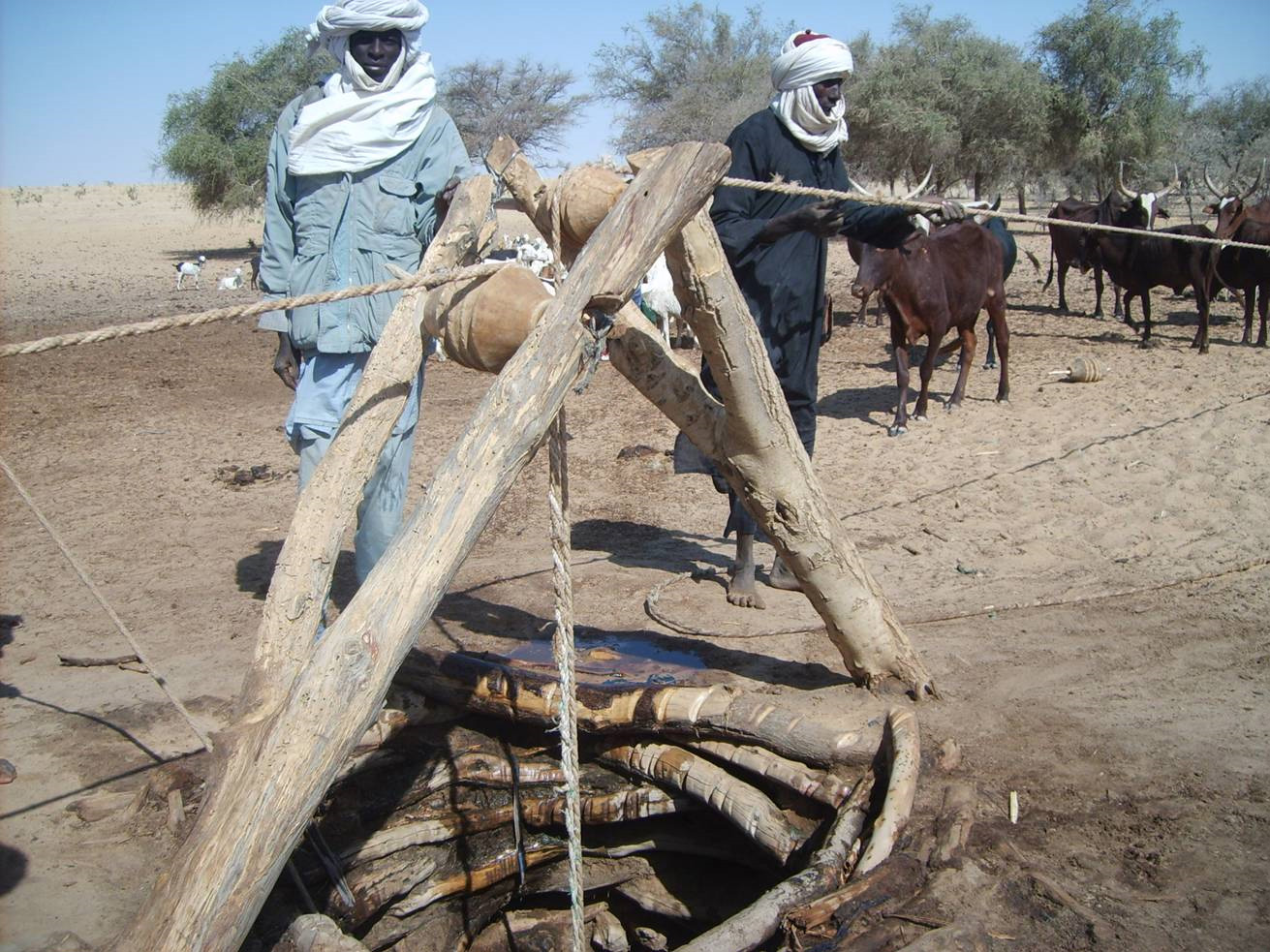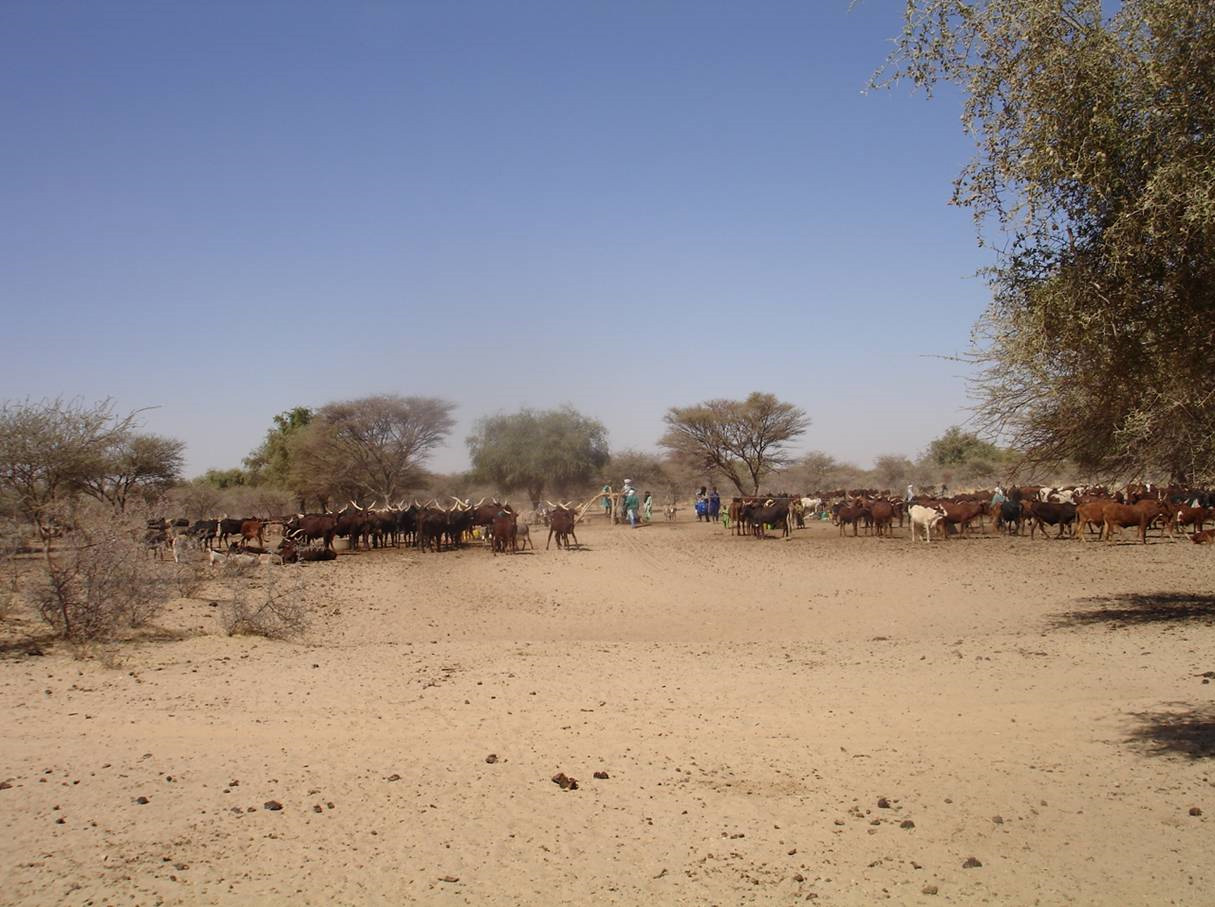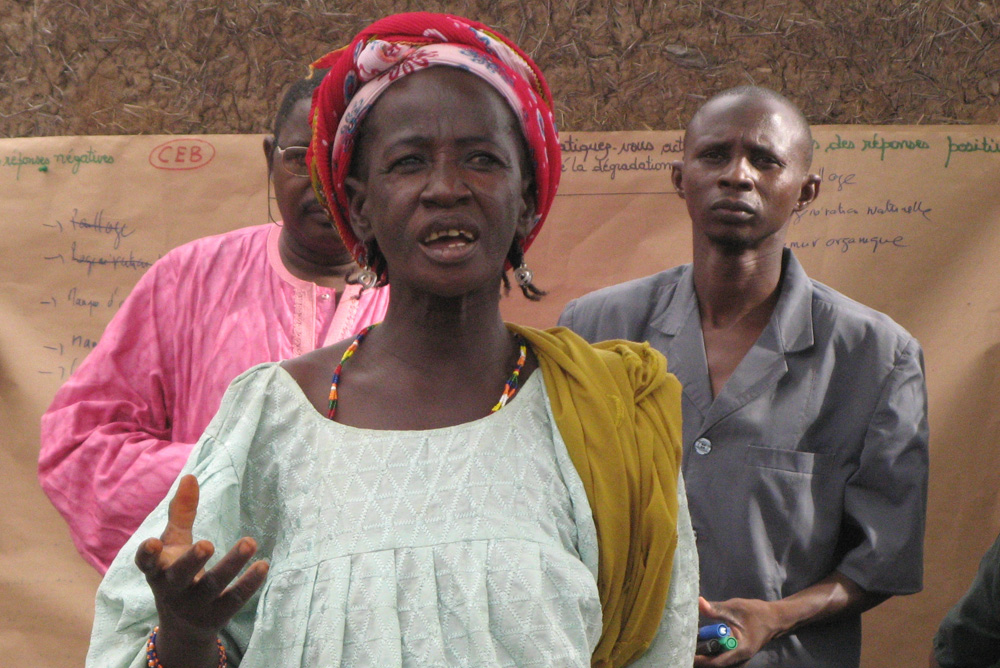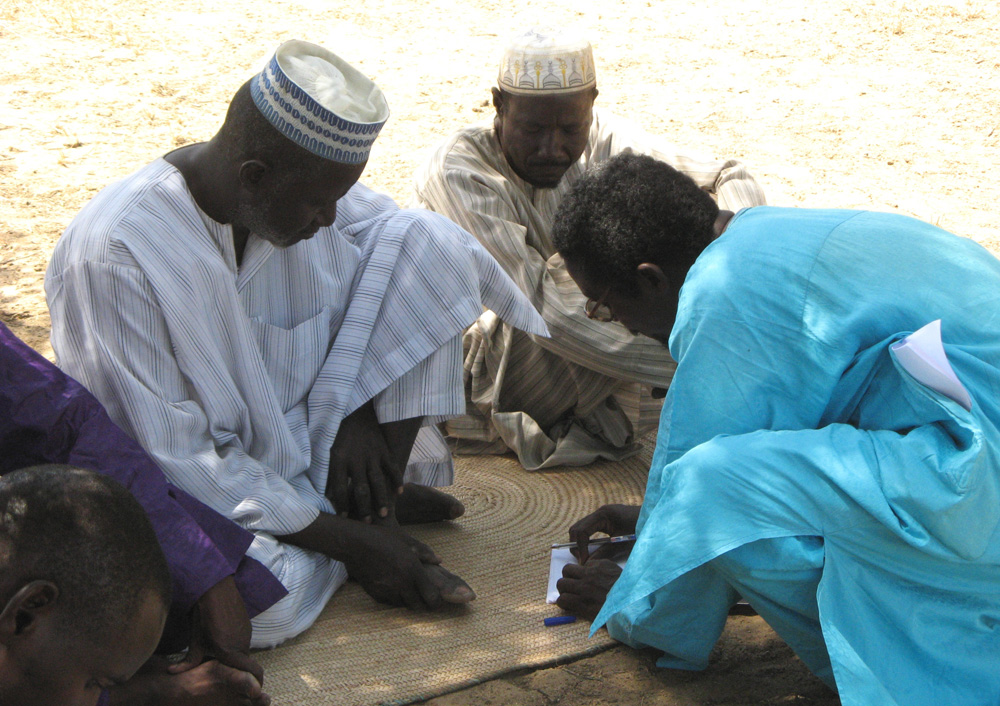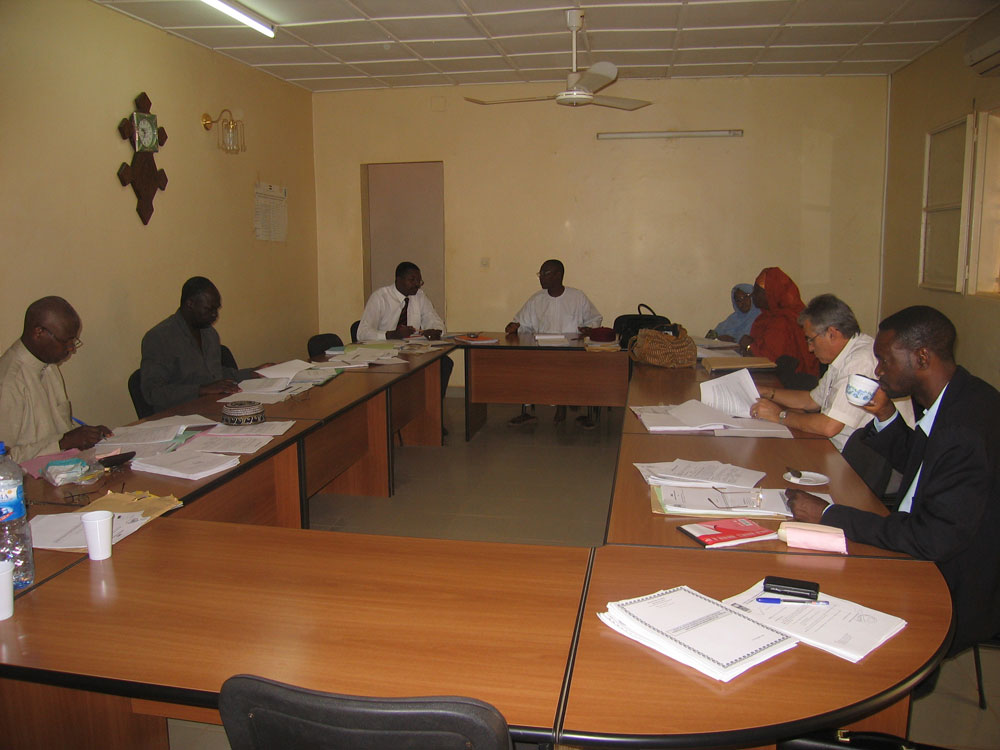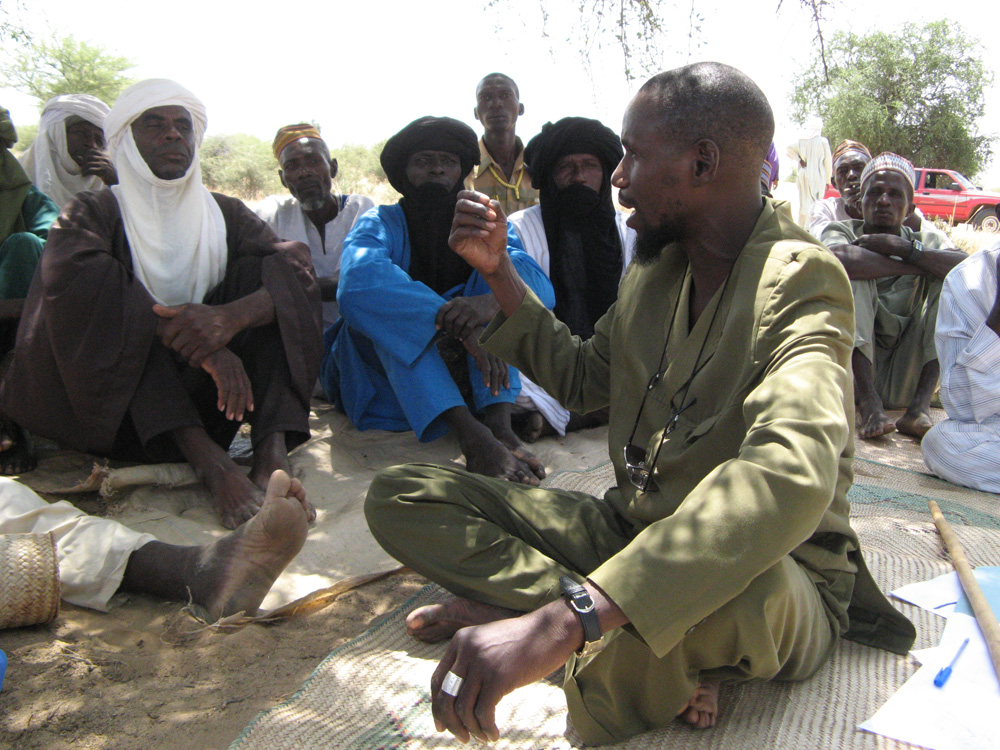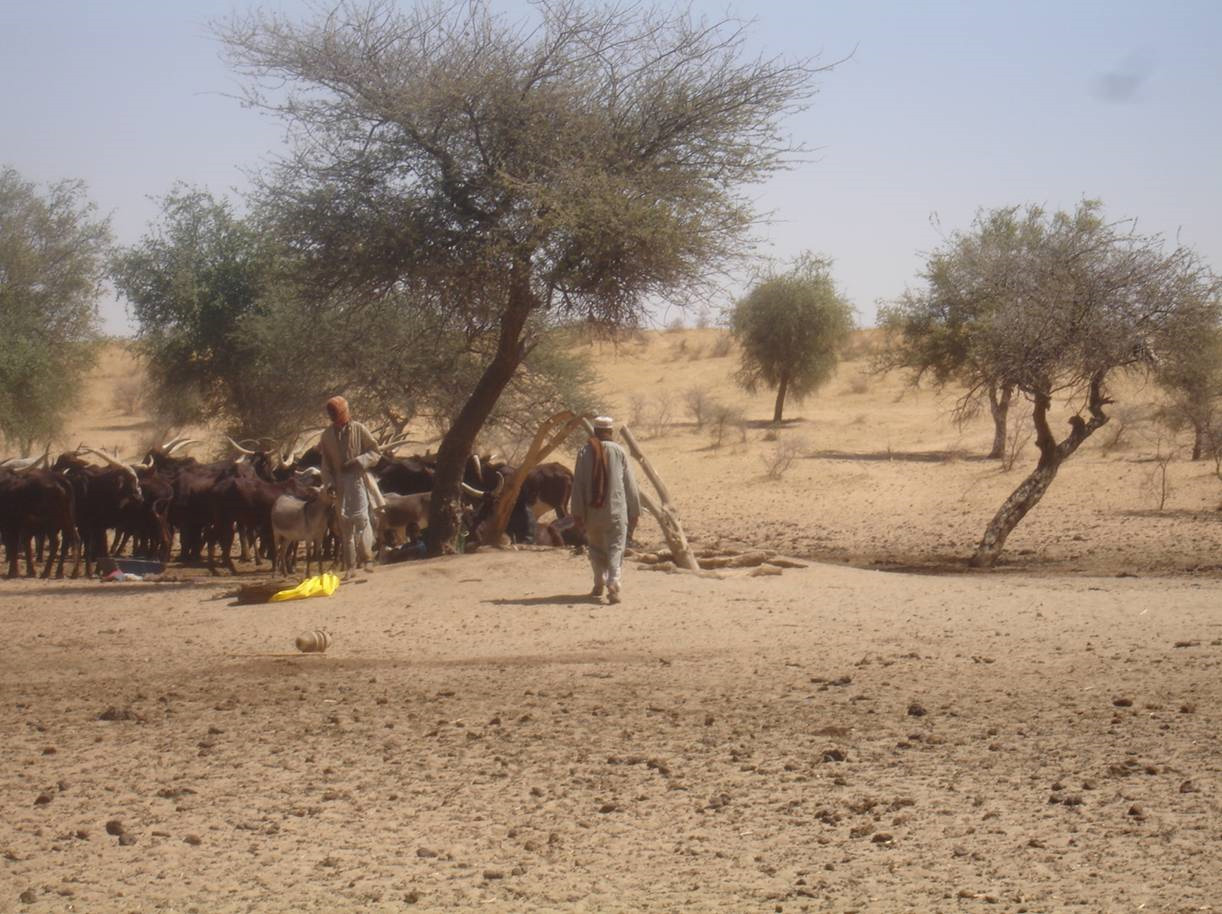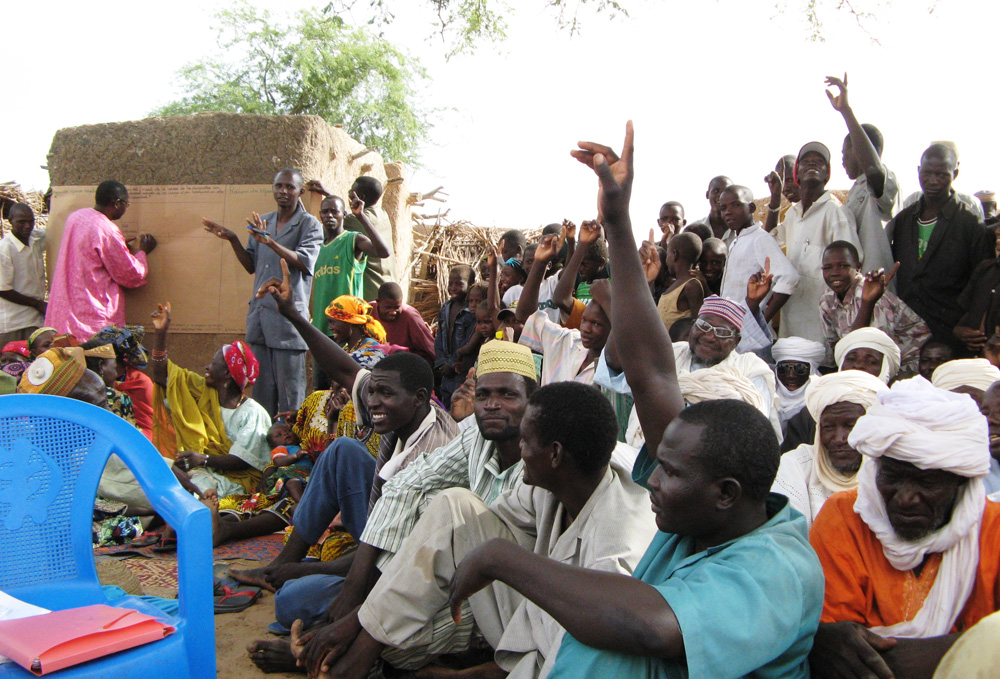Community-Based Adaptation: Niger
Project Overview
Niger is a semi-arid to arid country, and faces significant land degradation stemming from baseline pressures. Climate change threatens to exacerbate these issues, in the process worsening food insecurity and making poverty reduction increasingly challenging. Impacts of climate change are expected to include:
- Higher temperatures/increasing aridity
- More erratic rainfall, leading to greater risk of drought and flood
- Increased erosion risks
- Declining resilience of forest resources
- Reduced crop and livestock productivity
The Community-Based Adaptation project portfolio in Niger consists of seven (7) projects:
1. Intensified Goat Breeding to Help Vulnerable Women Adapt to Climate Change Effects
2. Adapting to Climate Change in the Community of Tamalolo
3. Intensified Agroforestry Practices for Adaptation in Tânout
4. Hut Livestock to Reduce Household Vulnerability in Houtchi and Dan Djaoudi, Roumbou
5. Developing Sustainable Agriculture Techniques for Adaptation in Roumbou Municipality, Dakoro
6. Improving Agro-Forestry and Providing Better Seeds to the Community of Maigochi Saboua, Roumbou
7. Adapting Pastoral and Agricultural Practices to the Realities of Climate Change
CBA projects work with communities in Niger's Sahel to build resilience to climate change within agro-pastoral ecosystems, supporting rural livelihoods, and particularly focusing on the needs of women. Activities will be guided by the Niger CBA Country Programme Strategy (English Abstract).
All CBA projects involve non-governmental organizations (NGO) at the local and national levels. The UN Volunteers is a project partner in seven (7) out of the ten (10) CBA countries: Bolivia, Guatemala, Jamaica, Morocco, Niger, Namibia, and Samoa. In addition to the Adaptation & Volunteerism Specialist overseeing the seven (7) countries, an International UNV officer in Niger is fully dedicated to the CBA projects at the local level. The partnership began in June 2009.
The Government of Japan co-finances the UNDP/GEF CBA projects in Niger and Namibia. This partnership began in early 2009.
* Niger is one of ten (10) countries implementing projects as part of UNDP's "Community-Based Adaptation" project. *
Project Details
The impacts of climate change will significantly exacerbate livelihood/subsistence risks for rural agropastoralists in Niger. Increasing aridity and increasing climate variability will threaten the production systems upon which rural communities rely, increasing erosion and worsening desertification risks. Thus, climate change impacts pose serious risks to sustainable development, poverty reduction, and attainment of the Millennium Development Goals in Niger. Rural agricultural and pastoral communities – the large majority of Niger’s population – are reliant upon climate-sensitive rangeland, woodland, and agricultural ecosystems for their livelihoods and subsistence.
In response, the Community-Based Adaptation project in Niger will improve the capacity of communities to adapt to climate change impacts, while also building capacity to incorporate climate change considerations into sustainable land management practices. This will, in turn, further increase ecosystem resilience in the face of climate change, as well as generate global environmental benefits in the GEF Land Degradation focal area.
CBA activities in Niger focus on water resources, agriculture, livestock, forestry, wildlife/ecosystem management, fisheries, and health. Choice of project foci and development of project approach were guided by community-driven adaptation and livelihood priorities. Nationally, implementation adheres to the following strategic approach:
- At the local level, projects will seek to increase the resilience of community livelihoods in the face of climate change impacts through sustainable natural resource management practices that also generate global environmental benefits in the Land Degradation focal area.
- At the national level, projects will provide lessons on Community-Based Adaptation to inform national adaptation strategies, policies, and activities.
Climate Change Projections for Niger
Climate change projections for Niger include increased temperatures and changing rainfall patterns. Temperatures are predicted to increase steadily, increasing by 3-4°C during the 21st century, with increases concentrated in the main rainy season. Rainfall projections are less certain, though assessments completed for the IPCC 4th assessment report suggest increases in yearly average rainfall, with rainfall coming in increasingly intense and erratic storms, and with significant inter-annual variability.
Increasing evapotranspiration driven by temperature increases, in combination with increasingly rainfall variability, is likely to decrease water availability significantly, and increase the proportion of drought years.
Climate change impacts in Niger will manifest in the context of significant baseline inter-annual and inter-decadal patterns of climate variability.
Key Results and Outputs
CBA activities in Niger focus on water resources, agriculture, livestock, forestry, wildlife/ecosystem management, fisheries, and health. Choice of project foci and development of project approach were guided by community-driven adaptation and livelihood priorities. Nationally, implementation adheres to the following strategic approach:
- At the local level, projects will seek to increase the resilience of community livelihoods in the face of climate change impacts through sustainable natural resource management practices that also generate global environmental benefits in the Land Degradation focal area.
- At the national level, projects will provide lessons on Community-Based Adaptation to inform national adaptation strategies, policies, and activities.
Reports and Publications
Brochures, Posters, Communications Products
Community-Based Adaptation: Climate Change in Action brochure (2009)
Community-Based Adaptation: Climate Change in Action brochure (Jan. 2010)
Community-Based Adaptation to Climate Change Brochure (July 2010)
CBA Inception Workshop, July 2009 - Lessons Learned from the VRA (Katiella Mai Moussa and Nickey Gaseb)
CBA Inception Workshop, July 2009 - CBA in Niger (Gaidama Abdou)
Annual Reports
ProDocs
Project Brief / Fact Sheet
Multimedia
UNDP in Niger: RANET
The CBA represents the community-based component of the GEF Strategic Priority on Adaptation (SPA). The SPA is an ecosystem-based climate change adaptation fund, designed to support ecosystem resilience in the face of climate change, including variability. The CBA is a global project, implmented as a key component of UNDP-GEF's wider adaptation portfolio.
Monitoring and Evaluation
Monitoring and evaluation for community-based adaptation is a new field, and the CBA project is piloting innovative approaches to evaluating the success of locally-driven adaptation projects, and generating lessons to inform ongoing practice.
Key considerations in M&E for CBA include:
- Grounding M&E in the local context: M&E for CBA should avoid overly rigid frameworks, recognizing community heterogeneity and maintaining local relevance
- Capturing global lessons from local projects: CBA projects are highly contextualized, but lessons generated should be relevant to stakeholders globally
- Incorporation of both quantitative and qualitative indicators: to ground projects in tangible changes that can be objectively evaluated, and to capture lessons and case studies for global dissemination
To these ends, the CBA project uses three indicator systems: the Vulnerability Reduction Assessment, the Small Grants Programme Impact Assessment System, and the UNDP Climate Change Adaptation Indicator Framework.
The Vulnerability Reduction Assessment (VRA)
The VRA is a question-based approach with the following aims:
- To make M&E responsive to community priorities
- To use M&E to make projects more accountable to local priorities
- To make M&E capture community ideas and local knowledge
- To gather community-level feedback to guide ongoing project management
- To generate qualitative information
- To capture lessons on specific issues within community-based adaptation
- To generate case studies highlighting adaptation projects
The VRA follows UNDP's Adaptation Policy Framework, and is measured in a series of meetings with local community stakeholders. In these meetings, locally-tailored questions based on standard VRA questions/indicators are posed, and the community assigns a numerical score on a 1-10 scale for each question. Progress is evaluated through changes in scores over the course of implementation, as well as through qualitative data collected in community discussions surrounding the exercise.
UNDP has developed a Users Guide to the VRA (Espanol) (Francais) as a tool to assist practitioners to conceptualize and execute VRA measurements in the context of CBA projects.
The SGP Impact Assessment System (IAS)
The CBA, being a project of the GEF Strategic Priority on Adaptation, aims to increase the resilience of ecosystems and communities to the impacts of climate change, generating global environmental benefits, and increasing their resilience in the face of climate change impacts. To this end, the CBA projects use the SGP's impact assessment system for monitoring achievements in GEF focal areas (focusing primarily on biodiversity and sustainable land management).
The IAS is composed of a number of quantitative indicators which track biophysical ecosystem indicators, as well as policy impact, capacity development and awareness-building.
UNDP Climate Change Adaptation Indicator Framework
CBA projects also track quantitative indicators from UNDP's adaptation indicator framework, corresponding to the thematic area on natural resources management. More information on UNDP's indicator framework can be found on the UNDP climate change adaptation monitoring and evaluation website.
* This description applies to all projects implemented through UNDP's Community-Based Adaptation programme. Specific details on this project's M&E will be included here as they become available. *
